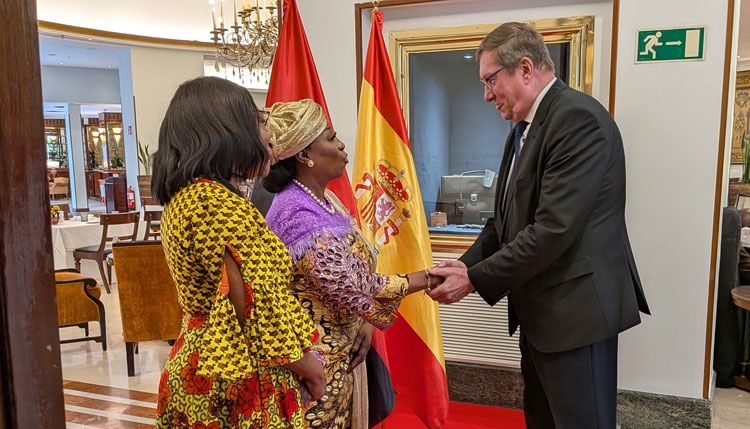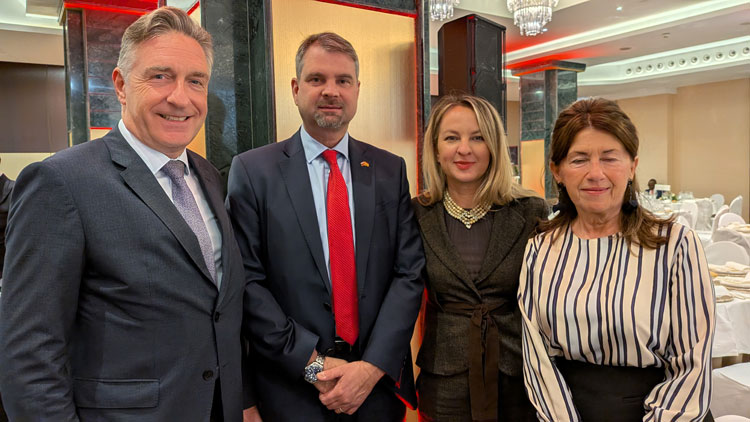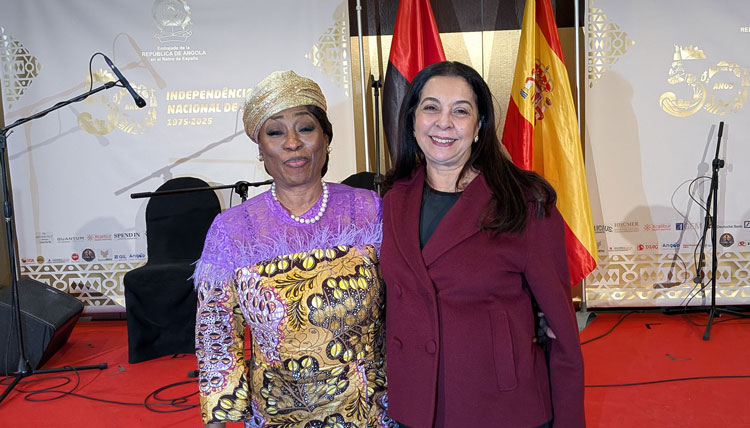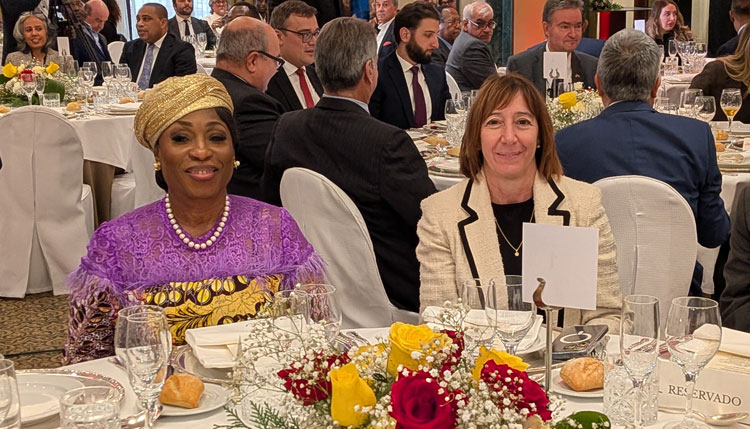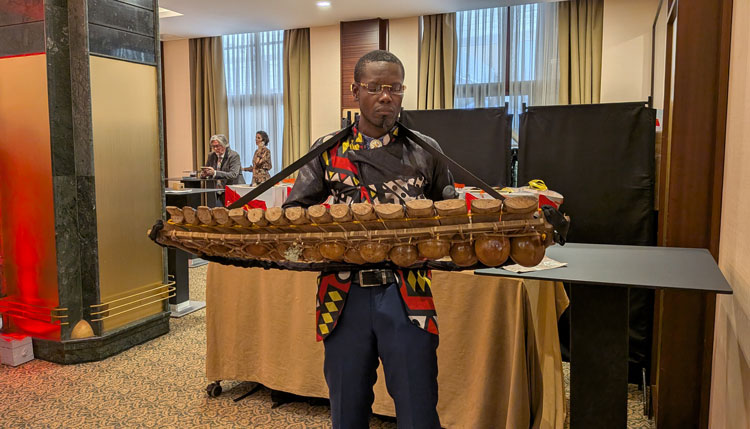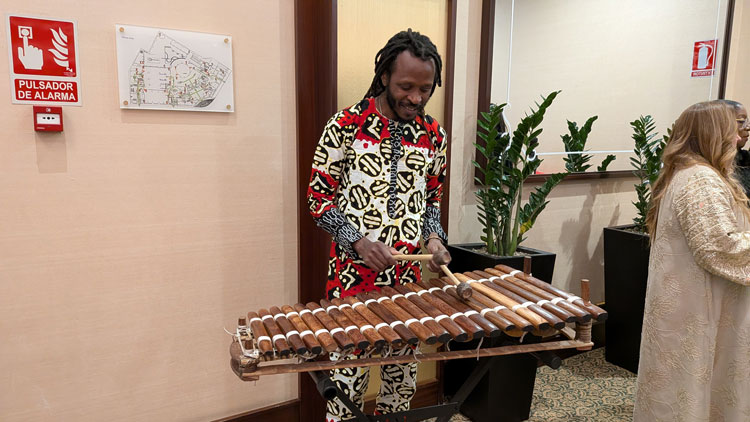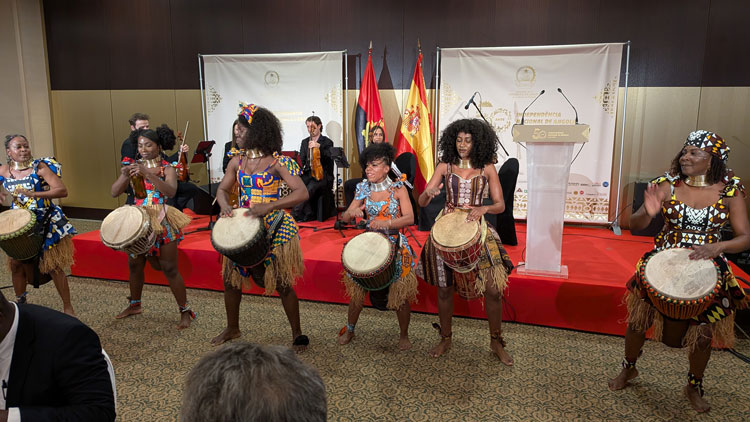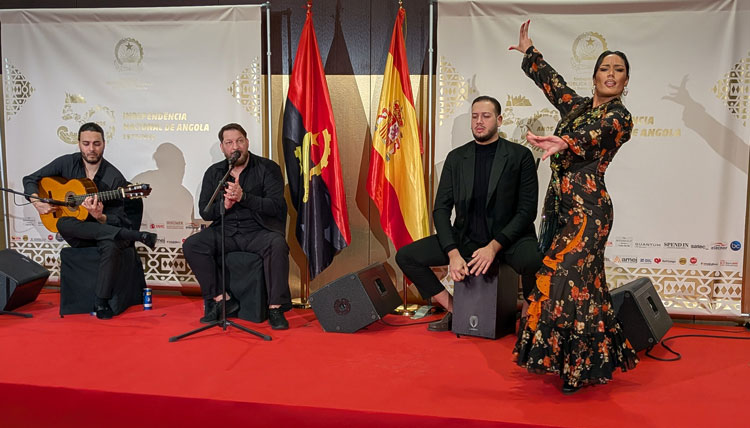Text and photos: Juan David Latorre
Last Tuesday, the Embassy of Angola held a solemn ceremony to celebrate the 50th anniversary of the African country’s independence, with Ambassador Balbina Malheiros Dias da Silva as host.
Referring to November 11, 1975, the day Angola achieved its independence, the ambassador noted, “From the darkness of the long colonial night, suddenly, light emerged in the early hours of the morning. We conquered our divinity, we conquered our sovereignty, we raised our flag, we sang our anthem, and we ignited the flame of hope. With the dawn of a new century, the early morning of November 11, 1975, brought Angola new and complex challenges that continue to evolve over time. Contrary to what was hoped for, independence did not bring the peace and stability necessary for the construction and development of a newly independent nation.”
“Fifty years later, the country has changed in every respect, certainly demographically. From approximately 6.5 million inhabitants in 1975, Angola now has, according to projections from the National Institute of Statistics, nearly 35 million inhabitants, with a projected population of around 68 million by 2050. The beginning of our journey was not easy. At the time of the proclamation of independence, the country had only 19 doctors, and there was a clear shortage of nurses and technicians in all specialties. National independence took place in a complex and challenging context,” the Angolan ambassador noted.
He continued, “Angola is today an indispensable actor in conflict prevention and resolution, offering a doctrine of peace and post-conflict national reconciliation, as illustrated by its two elections to non-permanent membership on the UN Security Council, its four terms on the African Union Peace and Security Council, its participation in numerous peacekeeping missions and leadership of several mediation initiatives, and its hosting of the Luanda Biennial for the Culture of Peace and Non-Violence, whose recognition established our country as a champion for peace and reconciliation in Africa—a highly preserved framework that fills any patriot with pride. Our continent remains our highest priority in the realm of extreme politics. This year is particularly significant because we have assumed, for the first time in our history, the pro-contemporary presidency of the African Union, a fact that fills us with patriotic pride as it constitutes one of our greatest diplomatic achievements, but which also increases our responsibility to the African continent.”
“Our diplomacy was important in the struggle for national freedom, for the conquest of national independence, crucial in safeguarding territorial integrity, decisive for achieving peace, necessary for national reconstruction, and unyielding today for the development process, being a structural pillar of our nation. We have been tireless in our work to show the world an open, stable country, ready to receive all those who are attracted to invest here, with a focus on attracting foreign direct investment, stimulating exports of national production, and the gradual internationalization of our companies. We have promoted intensive diplomatic work in various parts of the world,” emphasized Balbina Malheiros Dias da Silva.
“We all know that achieving peace was very difficult,” he noted, “it required magnanimity, serenity, and the capacity to forgive. As President José Eduardo dos Santos said in his address to the nation on April 3, 2002, ‘whoever truly loves peace must know how to forgive and reconcile with their neighbor, thus contributing to the true and solid unity of Angolans.’”
“Today,” the Angolan ambassador stated, “we reiterate that Angola is open to joining us. We are a country in transformation, with political stability, ongoing economic reforms, and an increasingly favorable environment for foreign investment. We invite Spanish businesspeople to explore the opportunities Angola offers in the energy, agriculture, fishing, tourism, infrastructure, and emerging technology sectors. But more than business, this celebration is also about values. Angola and Spain share a commitment to peace, multilateralism, sustainable development, and the dignity of all peoples. It is in this spirit that we want to continue building bridges between governments, between companies, and between sectors.”
Following a luncheon offered to the Diplomatic Corps and the Angolan community in Spain for this commemoration, the Embassy was celebrated Angola Day throughout the afternoon at Madrid’s Plaza de Toros de Las Ventas, featuring hizomba (a musical genre and partner dance that originated in Angola in the 1970s), Angolan cuisine and carnivals, and live music from artists such as Gabriel Tchimea, As Gingas do Maculusso, Daniel Nascimento, Noite e Día, Sandra Cordeiro, DJ Malvado, Tony do Fumo Júnior, Hláudio Hoshai, and Antonica. It was a true festival of Angolan culture under the motto “Angola is rhythm, nature, and heart. A country not just to visit, but to experience.”
